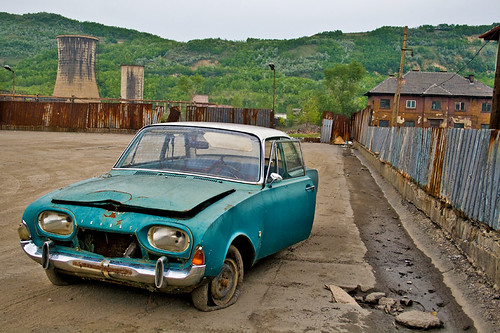
- One hundred forty-three years after passage of the 13th Amendment to the U.S. Constitution and 60 years after Article 4 of the U.N.'s Universal Declaration of Human Rights banned slavery and the slave trade worldwide, there are more slaves than at any time in human history — 27 million.
Today's slavery focuses on big profits and cheap lives. It is not about owning people like before, but about using them as completely disposable tools for making money.
During the four years that Benjamin Skinner researched modern-day slavery, he posed as a buyer at illegal brothels on several continents, interviewed convicted human traffickers in a Romanian prison and endured giardia, malaria, dengue and a bad motorcycle accident.
But Skinner is most haunted by his experience in a brothel in Bucharest, Romania, where he was offered a young woman with Down syndrome in exchange for a used car.
BS: Yes, and I knew that I could get that car for about 1,500 euros. While that may sound like a very low price for human life, consider that five hours from where I live in New York — a three-hour flight down to Port au Prince, Haiti, and an hour from the airport — I was able to negotiate for a 10-year-old girl for cleaning and cooking, permanent possession and sexual favors. What do you think the asking price was?
TM: I don't know … $7,500?
BS: They asked for $100, and I talked them down to $50.

